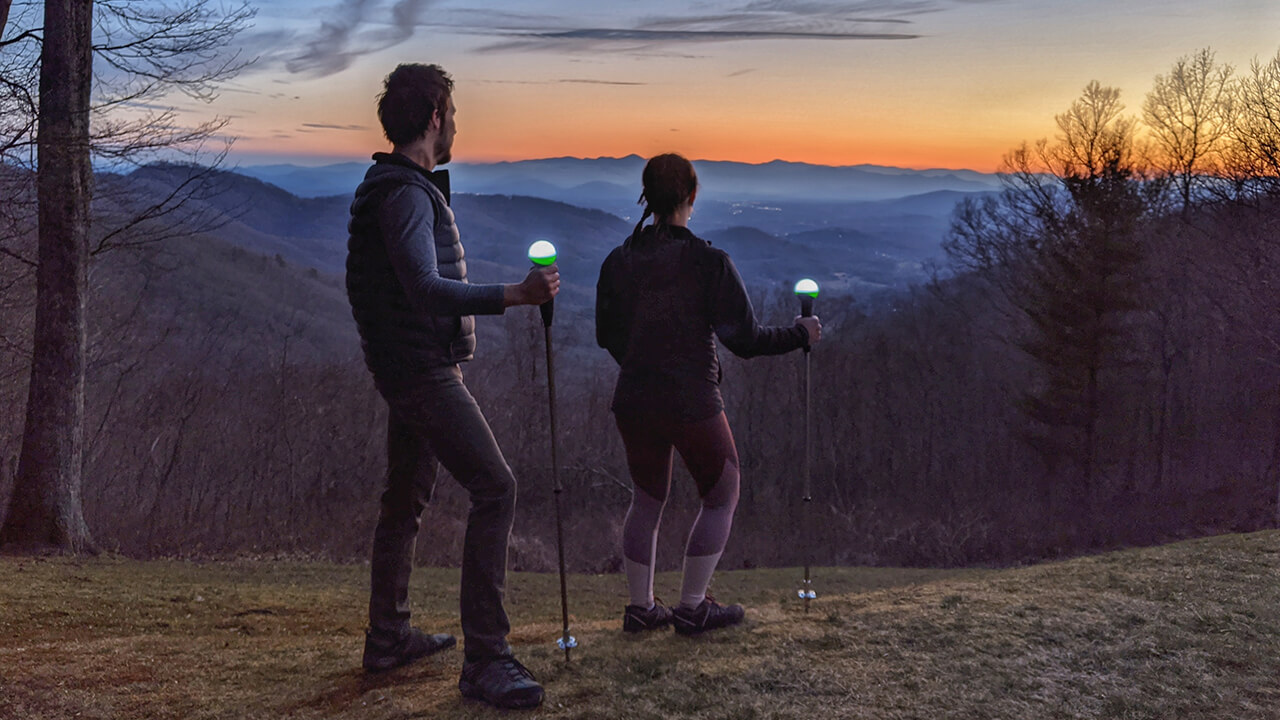With the warmer months upon us, there are more opportunities to explore. Nicer weather means easier access to different parks and hikes, which means higher chances of people getting outdoors and adventuring. We love this.
One adventure we are particularly excited about is night hiking. What may be dangerous during the colder months can be an epic experience when it's warm out. Just imagine the stars you'll see!
However, night hiking is something that you don't want to jump into unprepared. It is a far cry from a casual hike during the day and in order to be safe, you need to take precautions.
Don't worry – we are here to help. If night hiking is something that interests you, read on to find out the basics of this activity that ensure you have a fun and safe time.
The reason for loving night hiking.
- cooler.
Hiking at night provides a unique way to enjoy hiking when the temperatures are much more comfortable.
- Discover the beauty of nature.
- A better time for you.
By hiking at night, you cut back drastically on the number of people you may run into on a hiking trail. In fact, you may find that you're one of the only people out on the trail when you embark post-sunset.
- A new perspective.
For your first few experiences of night hiking, you probably want to stick to trails that you are familiar with. This allows you to feel safer and have an idea of where you are going as you wander through the dark.
Though you are on a familiar trail, you are getting a whole new perspective. Enjoy as the trail comes alive in a fun and fresh way.
The right lights
Since you won't be able to use the light of the sun to hike like you do during the day, lighting is something you need to bring with you for your night hike.
And this can't just be any light – it needs to be something good that you can rely on.
However, we want to note that you don't need to bring a blindingly bright light on your night hike. Rather, you want to bring something dim that will help your eyes better adjust to the dark.
If you're hiking during a full moon, you may even find that the moon is bright enough to guide you. But if that's not the case, or if you feel hesitant about relying solely on the moon, then get yourself the right headlamp.
Get a headlamp that you can comfortably wear on your head and won't bother you while you hike.
The right clothes
When the sun drops, so does the temperature. But, you also don't want to load up on too many layers since you will be working up a sweat from hiking.
So how do you find the happy middle ground?
By bringing light layers. Start with a t-shirt and then throw a long-sleeved on top as well as a light jacket. With all these layers, you want to bring a light backpack so you can stow them away when they're not in use.
Other tips
Always go with a friend. Night hiking alone is a big no-no. Use the buddy system when heading out on this kind of adventure. Ideally, you would have a group hiking with you at night, but you want at least one other person.Don't bring gear you've never used before. The time to try out your new pair of hiking boots is not on a night hike. This can quickly turn into a nightmare if you find that your boots aren't the right size or they are uncomfortable. Instead, stick only to gear that you already know and love.
Watch out for wildlife. Though you likely won't run into any major wildlife issues while hiking on a familiar trail, it is important to do some research and take a look at what animals may be in the area before embarking on your hike. And while in the wild, keep your eyes peeled and your ears open for signs of wildlife.

